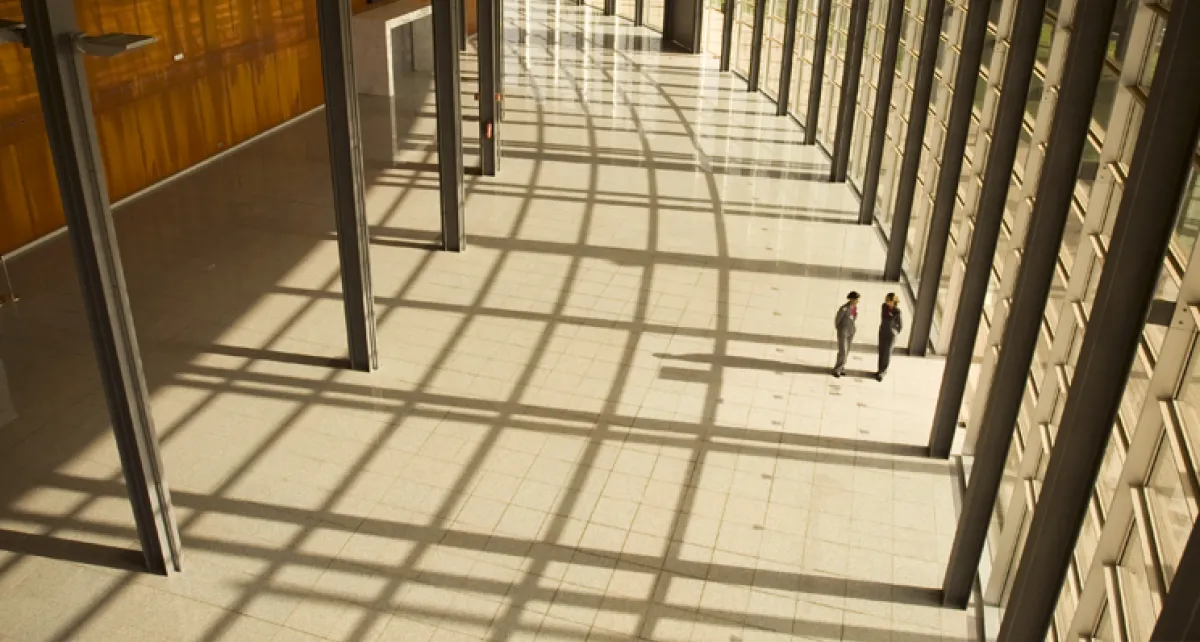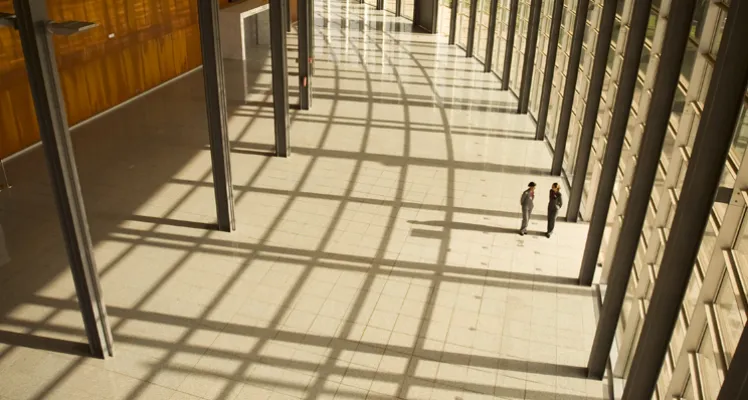
BVI offers international arbitration forum
In the current climate, arbitration is on the rise as a method of dispute resolution, with the British Virgin Islands (BVI) having the potential to become a popular choice of seat in the region. Together with litigation, which remains the dominant form for commercial dispute resolution, we look at the BVI's wider role and increased attractiveness in the field of international arbitration.
The British Virgin Islands is currently a fledgling but promising forum for the arbitration of commercial disputes. The BVI is a truly international jurisdiction. It is a major offshore financial centre, particularly specialising in the formation of group parent companies, asset-holding special purpose vehicles, and investment funds. The country’s recognisable English law origins and progressive legal framework governing the administration of trusts has made it a popular jurisdiction for international private wealth structures. As a self-governing British Overseas Territory, the BVI’s legal system is rooted in English common law and equitable principles supplemented by legislation passed by the BVI's legislature and certain statutes and instruments passed by the UK Parliament and extended to the territory by Order in Council.
The BVI has a sophisticated High Court and Commercial Court and a strong local appeal Court in the Eastern Caribbean Court of Appeal, based in St Lucia. The final Court of appeal is the Judicial Committee of the Privy Council which sits in London and consists of justices of the UK Supreme Court. The Commercial Court is home to some of the largest disputes in the world, especially in recent years between Oligarchs with cases worth billions of dollars.
The BVI, with its commercial attractiveness and geographical centrality in the Caribbean region, is also well placed for the global trend of the rapidly increasing use of arbitration in cross-border commercial disputes. The BVI Arbitration Act 2013 (the BVI Act) came into force on 1 October 2014, and the Territory took a bold step forward by investing in a state-of-the-art arbitration centre, the BVI International Arbitration Centre (BVIIAC), which opened in November 2016. The New York Convention on the Recognition and Enforcement of Foreign Arbitral Awards of 1958 (the New York Convention) was also extended to the BVI in 2014.
With its judicial support from the BVI Courts in favour of arbitration, and a sophisticated enforcement of arbitral awards regime, the BVI is recognised as a progressive and pro-arbitration jurisdiction. For instance, in Hualon Corporation (M) SDN BHD (in receivership) v Marty Limited, [1] the BVI Commercial Court referred to the BVI as an arbitration seat and noted: "as an important international financial centre, and to facilitate international finance and commerce, this jurisdiction's approach to arbitration, in this case international commercial arbitration, should be and is consistent with the approach of the most advanced pro-arbitration jurisdictions in the world".
BVI Arbitration: The Landscape
The BVI Act provides arbitral tribunals with broad jurisdiction. It includes, for example, the ability to determine its own jurisdiction (based on the globally recognised competence-competence principle), to order interim measures and make orders in support of arbitration. The Act is based on the UNCITRAL Model Law, and the BVI IAC Rules are based on the 2010 UNCITRAL Arbitration Rules. As such, the rules and procedure of BVI arbitration will be familiar to international arbitrators in other jurisdictions. Further, parties are free to incorporate other institutional rules into their arbitration agreements if they wish. For instance, parties to a Hong Kong related dispute might prefer to use the rules of the Hong Kong International Arbitration Centre. The BVIIAC allows for such flexibility.
The Act recognises fundamental arbitration principles, such as the principle of confidentiality. Unless the parties agree otherwise, all the information related to a BVI arbitral proceeding is confidential, which means that it cannot be published, disclosed, or communicated to third parties. This is becoming more and more attractive in international dispute resolution. Indeed, the BVI Commercial Court has, in recent years, seen an increased wish from some parties engaged in litigation to move away from principles of “open justice” to seeking hearings in private, sealed Court files, and “confidentiality clubs” regarding certain sensitive information. It will be interesting to see if this trend leads to an increase in the arbitration of BVI disputes in the next few years.
In line with the UNCITRAL Model Law, the Court's jurisdiction to set aside an arbitral award is very limited. Further, unless the parties agree otherwise, BVI arbitral awards are final. However, the parties may choose to opt-in to certain provisions and permit the BVI Commercial Court to exercise additional supervisory jurisdiction over the conduct of an arbitration. These include, among others, the ability to apply to the court: (i) for an order to consolidate arbitrations; (ii) to determine questions of law arising in the arbitration where doing so might result in substantial cost savings to the parties; (iii) to challenge the award on the ground of serious irregularity.
In general, the arbitral process in the BVI is intended to be conducted with minimal interference from the judicial system. However, the BVI Courts have jurisdiction to give interim relief to support the arbitration process if case required. For instance, the BVI Court may grant injunctive relief in relation to any arbitral proceedings which have been or are to be commenced in or outside of the BVI pursuant to section 43 of the Act. This is a very powerful tool to help preserve assets and evidence. Indeed, relief in support of foreign arbitrations and the enforcement of arbitration awards is a major part of BVI litigation.
Enforcement Of Arbitral Awards
The accession of the BVI to the New York Convention effectively serves to facilitate the enforcement of foreign awards in the country and strengthens the BVI's position in the international arbitration arena. As the BVI Commercial Court stated in PT Ventures SGPS SA v Vidatel Ltd, “the general approach to enforcement of an award should be pro-enforcement”.[2] As such, there must be good reasons for refusing to enforce a New York Convention award. Enforcement of arbitral awards in the BVI is generally swift and straightforward and can be initiated on an ex parte basis. Once the award is enforced, it is treated as equivalent to a judgment of the BVI court and all local enforcement measures against assets located in the BVI are available to the applicant; for example: charging orders, orders for the seizure and sale of goods and the appointment of a receiver.
Accordingly, some of the BVI’s major litigation in the Commercial Court relates to the enforcement of foreign arbitral awards and attempts to seek remedies against the assets of BVI companies. For instance, Carey Olsen and other leading BVI law firms are currently involved in a very high profile dispute regarding the enforcement of a US$6 billion dollar International Centre for Settlement of Investment Disputes (ICSID) arbitral award against the Islamic Republic of Pakistan by an Australian copper mining company
The Future Of BVI Arbitration
The BVI Courts are busy with cases relating to arbitration but despite its excellent facilities and strong and attractive rules and procedures, the BVIIAC has been relatively quiet since its inception. It is no secret that there have been few major arbitrations in the BVI since 2016. Litigation dominates. A major reason for this is that historically parties to commercial transactions have rarely included a BVI arbitration clause in their agreements. This may change in the future, and/or parties to a dispute may later choose to arbitrate rather than litigate (for reasons of confidentiality or otherwise). This may bring more arbitrations to the BVI, though other more established seats of arbitration such as London, Paris, New York and Singapore will still be vying for such business.
The BVIIAC may develop to become a vibrant hub for the resolution of local Caribbean disputes by way of arbitration, being the only kind in the region and with world class facilities. It may also become a neutral territory for parties located in North and South America seeing as it is geographically located between the two. Improved transport links in the region would certainly assist with this development. However, the BVIIAC certainly aims to be more ambitious and spread its wings further afield, engaging in disputes from Asia and elsewhere. The global COVID-19 pandemic has taught all legal practitioners that with virtual hearings and improved technology, geography and location are no longer as important as they used to be. The BVI judicial system and the BVIIAC have easily adapted to online hearings and case management and are well-equipped technically to use this experience in the future. As such, we expect an increase in BVI arbitration cases in the next few years, though BVI litigation is still likely to retain pole position.
[1] Hualon Corporation (M) Sdh Bhd (In Receivership) Acting By Its Receiver and Manager Dr Duar Tuan Kiat -v- Marty Limited Claim No. Bvihc (Com) 2014/0090, 8 April 2016, para. 186.
[2] PT Ventures SGPS SA v Vidatel Ltd, ECSC J0316-1 (2020), BVIHC (COM) 2015/0117 and BVIHC (COM) 2019/0067, 16 March 2020, para. 27.
An original version of this article was first published by IFC Review, November 2021
© Carey Olsen 2021.





